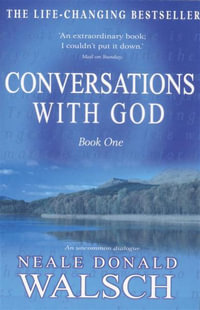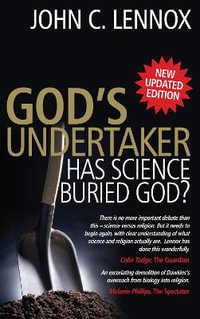The theme that God suffers with his world has become a familiar one in recent years, but a careful examination is needed of what it means to talk about the suffering of God, avoiding the danger of a merely sentimental belief. This book offers a consistent way of thinking about a God who suffers supremely and yet is still the kind of God to whom the Christian tradition has witnessed, and also about a God who suffers universally and yet is still present uniquely in
the cross of Christ. It is at once both a survey of recent thought about the suffering of God and a proposal for a way forward in this important area of Christian theology. The author surveys
four main trends of recent thought: the 'theology of the cross' in modern German theology (as represented particularly in the work of Karl Barth, Jürgen Moltmann, and Eberhard Jüngel); American process theology; 'the death of God' theology; and finally, the rejection of the whole idea of divine passibility by modern followers of classical theism. He draws upon these schools of thought in the course of reflecting upon various aspects of the main theme of the study.
This thematic structure enables an idea of divine suffering to be developed throughout the book, affirming that God freely chooses to limit himself, to suffer change, to journey through time and even to
experience death while remaining the living God.
Industry Reviews
`Creation, fall, incarnation, and atonement are ... interwoven with the theme of suffering in a profoundly original way.'
Theological Book Review
`This monograph is very creditable in many ways: it is lucid, richly documented and well-reasoned. With a great critical sense the author discusses other conceptions and profiles his own conviction. Fiddes's contribution to the debate is commendable.'
M. Steen, Ephemerides Theologicae Lovanienses
`This work maps with care and precision what is said, both in ancient debates of the Fathers and by those who address the issue in the present day. To date, there is no clearer examination of the questions which are raised by talk of a suffering God.'
Methodist Church Overseas Division Annotated Booklist
`Paul S. Fiddes has now provided the most comprehensive and thorough study of the issues yet to emerge. His treatment of the sources is accurate and probing ... this is a valuable and thought-provoking book.'
Daniel W. Hardy, Expository Times
`Paul Fiddes is to be congratulated on having written an excellent study of these issues and of their ramifications .. he engages in illuminating debates with an impressive range of biblical, patristic, medeival, modern and {ontemporary works ... Paul Fiddes' stimulating study deserves to be very widely read.'
David A. Paulin, University of Manchester. Modern Churchman
`this important survey illuminatingly explains how human suffering can be understood in the light of God's response to creation'
Dan Cohn-Sherbok, University of Kent, Theology
`Those who share the author's presuppositions about what he calls 'this central theme of Christian faith' will find this book of the greatest interest and usefulness. Those like myself, for whom any marring of the Trinity's eternal joy is unthinkable, may well need to read it if only to appreciate the growing extent of the opposition to their main point of view. They will be rewarded with much good argument in criticism of other writers who believe that
God suffers.'
New Blackfriars
`the lasting impression of the book is of one of the livelier minds of British theology opening up, with courage and rational persuasiveness, one of the critical contemporary theological topics' David F. Ford, Journal of Theological Studies
`Fiddes has offered us valuable critical reflections upon the leading theologians of our day. These criticisms will themselves be useful for anyone faced with the task of evaluating the vast literature on the problem of the suffering of God.' The Heythrop Journal
`the best critical and constructive discussion of the problem of divine suffering in Christian theology to date' Scottish Journal of Theology
`Remarkable for breadth of resources and its depth of argument ... This is an advanced and yet highly accessible discussion ... It is a fine text for seminary student, pastor, and scholar alike.' Interpretation
'Fiddes has provided a well written, clearly analysed, and thought-provoking work on the suffering of God ... He has raised issues that demand attention by theists today. This book is for theologically serious ministers and scholars. I anticipate working through it several more times myself.'
Paul E. Robertson, The Theological Educator, Number 48, Fall 1993
























